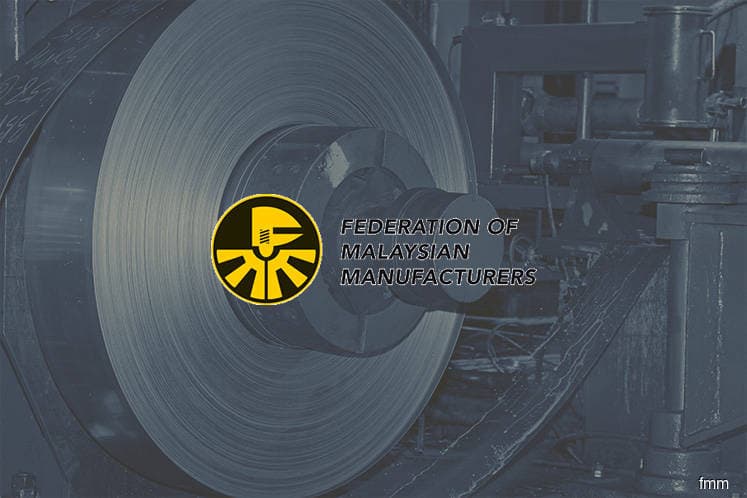
KUALA LUMPUR (Oct 22): The Federation of Malaysian Manufacturers (FMM) has applauded the government for tabling a "comprehensive and pragmatic" Mid-Term Review of the 11th Malaysia Plan, but hopes proposals to increase government revenue as part of fiscal consolidation would not lead to additional and unnecessary regulatory burden to the manufacturing sector.
"FMM strongly believes that the Malaysian manufacturing sector can contribute significantly towards helping to achieve the macro strategies of productivity, investments, moving up the value-chain and strengthening exports," FMM said in a statement today.
"The manufacturing sector has always been the main catalyst of growth with extensive upstream and downstream linkages throughout the value chain," said the federation, which represents over 10,000 companies in the manufacturing supply chain.
"The government should therefore support the manufacturing sector by ensuring a business-friendly operating and investment environment through the reduction of unnecessary regulatory burden and costs, and a more level playing field to facilitate fair and open competition and access to market opportunities," said FMM president Datuk Soh Thian Lai.
Soh, who is also executive deputy chairman of steel company YKGI Holdings Bhd, said the priority should be to support and promote the expansion of the economic pie to enable the reaping of higher returns to enhance business sustainability and, more importantly, medium- and long-term growth.
FMM added that the country's existing tax incentives such as the Reinvestment Allowance, Accelerated Capital Allowance, double deduction incentives for R&D, and export growth should be enhanced to help facilitate and spur the manufacturing sector to quickly undertake upgrading, expansion and diversification activities, including investing in Industry 4.0 technologies and innovation to achieve higher productivity and value-add.
The federation also said it looks forward to close and regular engagement with government, especially over matters on human capital development.
"We hope to see critical market-based levers, namely simple and transparent criteria; planned and pre-announced changes, especially in levy rates; removal of discretionary approvals, bureaucracy inconsistencies in policy implementation as well as rent seeking activities; and incentives to reward businesses which have reduced their dependence on foreign workers and unskilled labour.
"Levy collected should also be ploughed back to help finance industry's investments in automation and productivity enhancements," it added.